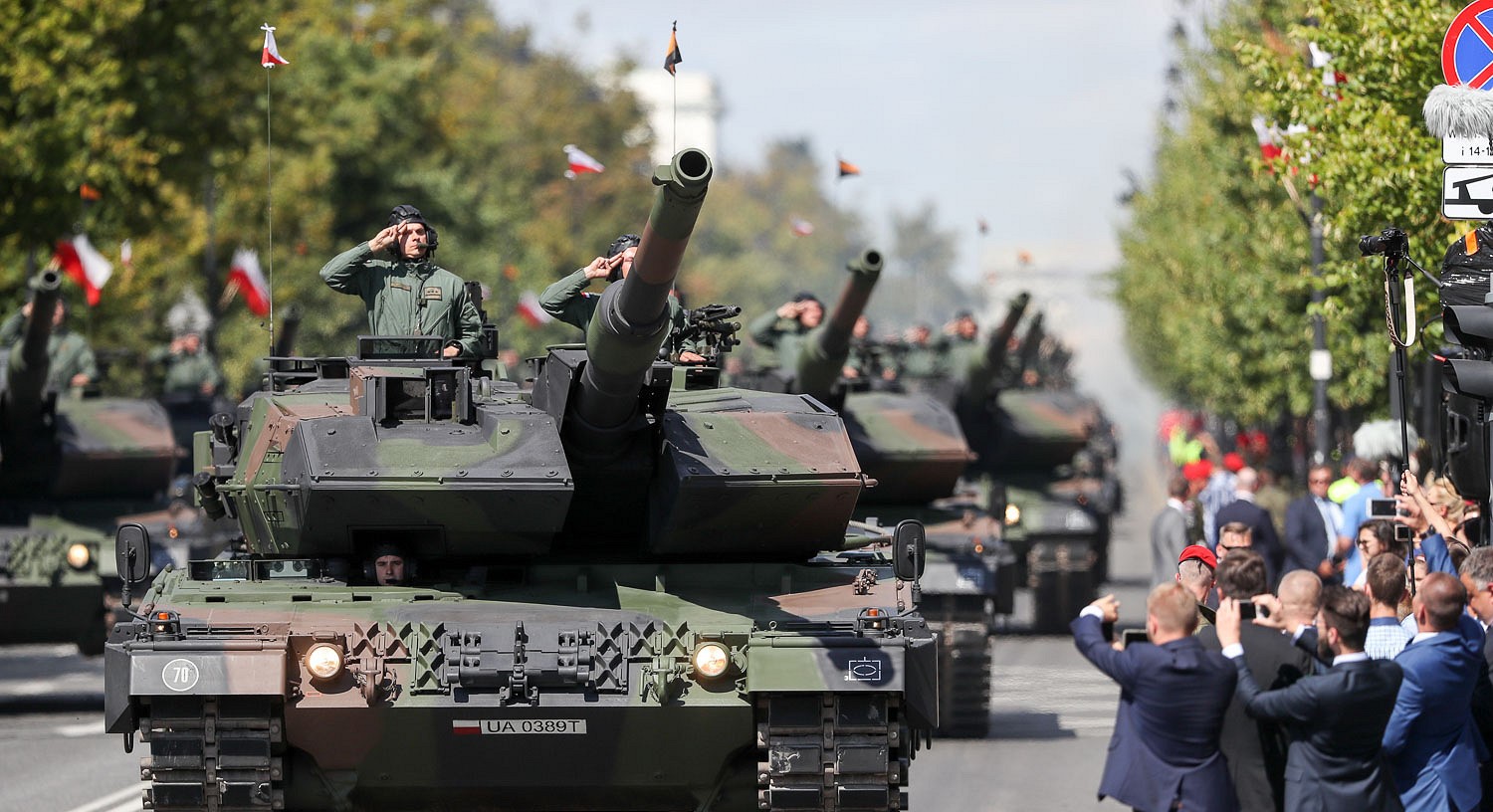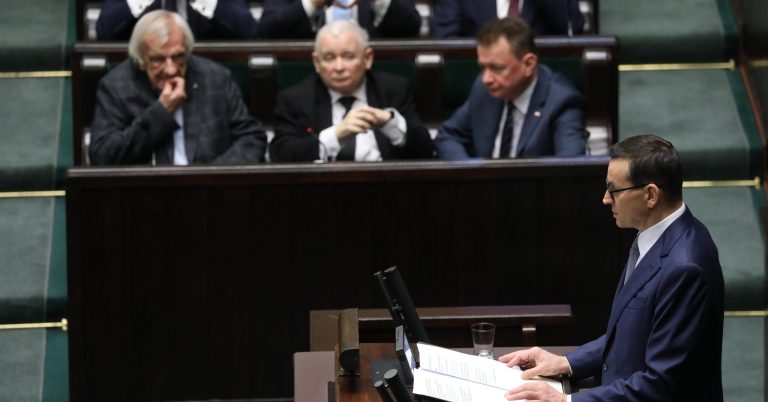Poland votes to suspend participation in Treaty on Conventional Armed Forces in Europe

Poland’s parliament has voted overwhelmingly in favour of suspending the country’s participation in an international treaty limiting the size of military forces in Europe that has been in place since 1990.
The move is part of a wider NATO decision to suspend the operation of the Treaty on Conventional Armed Forces in Europe (CFE) in response to Russia’s decision to withdraw from it last year.
📌Sejm uchwalił ustawę o zmianie zakresu obowiązywania Traktatu o konwencjonalnych siłach zbrojnych w Europie, podpisanego w Paryżu dnia 19 listopada 1990 r. pic.twitter.com/KyOXSoxA44
— Sejm RP🇵🇱 (@KancelariaSejmu) March 7, 2024
The CFE was agreed in 1990 by NATO and Warsaw Pact member countries as part of the process of bringing the Cold War to an end. It introduced limits on the stationing and possession of key categories of conventional military equipment.
However, in November last year Russia announced that it was unilaterally withdrawing from the treaty, claiming that the US-driven eastward expansion of NATO had rendered it void. Moscow had already suspended its participation in CFE in 2007.
NATO condemned Russia’s decision and announced in response that its member states intended to suspend operation of the treaty. Earlier this week, Moldova, a non-NATO signatory of the CFE, also announced plans to suspend its participation.
We join NATO Allies and others in suspending our obligations under the Treaty on Conventional Armed Forces in Europe (CFE) in response to Moscow’s failure to abide by the CFE since 2007, subsequent CFE withdrawal, and full-scale war against Ukraine. https://t.co/HdGS99zCzP
— Matthew Miller (@StateDeptSpox) November 7, 2023
Yesterday, the Sejm, the more powerful lower house of Poland’s parliament, voted on a government bill to suspend Poland’s participation in the treaty. Among 440 MPs present, 435, representing every political group, voted in favour.
“Suspension of the application of the treaty should currently be considered necessary for reasons of security and defence as well as the interests of Poland’s foreign policy,” said deputy foreign minister Władysław Teofil Bartoszewski.
“This step is dictated by a series of actions by Russia aimed at deliberately destroying the achievements of the treaty as one of the pillars of the security architecture in Europe,” he added, quoted by news website Onet.
During debate over the bill, some MPs from the opposition Law and Justice (PiS) party asked why it only suspended Poland’s participation rather than completely withdrawing. Bartoszewski said that Poland had wanted to terminate the treaty but there was no agreement among NATO allies, reports broadcaster TVN.
Around 20,000 troops from nine countries are taking part in NATO’s #Dragon24 exercises in Poland as part of #SteadfastDefender24.
They are testing the alliance’s deterrence and defence capabilities, including around the Suwałki Gap, a strategic chokepoint https://t.co/rfLecknIDp
— Notes from Poland 🇵🇱 (@notesfrompoland) March 5, 2024
The bill now passes to the upper-house Senate, which can delay but not block it, and where the government has a majority in any case. Once approved by parliament, it goes to the desk of President Andrzej Duda, who can sign or veto it.
Should Poland suspend its participation in the treaty, it will no longer be constrained by limits on the size of its armed forces nor have to annually report on their status.
However, in most categories, Poland, like many other signatories, is far from reaching those limits, making suspension of the treaty mostly symbolic. Under CFE, Poland is allowed to have up to 1,630 tanks, 2,150 armoured combat vehicles, 1,610 artillery units, 460 combat aircraft and 130 attack helicopters.
Since Russia’s full-scale invasion of Ukraine, Poland has embarked on an unprecedented military spending spree, agreeing the purchase of hundreds of modern tanks, aircraft, air defence systems, and other hardware, mainly from the United States, South Korea and the United Kingdom.
Poland has signed a $2.5bn deal with the US for an advanced air defence system.
Once implemented, Poland will be the first country other than the US itself to use the system https://t.co/ooYMnQRnT3
— Notes from Poland 🇵🇱 (@notesfrompoland) March 1, 2024
Notes from Poland is run by a small editorial team and published by an independent, non-profit foundation that is funded through donations from our readers. We cannot do what we do without your support.
Main image credit: Krzysztof Sitkowski/KPRP

Agata Pyka is an assistant editor at Notes from Poland. She is a journalist and a political communication student at the University of Amsterdam. She specialises in Polish and European politics as well as investigative journalism and has previously written for Euractiv and The European Correspondent.






